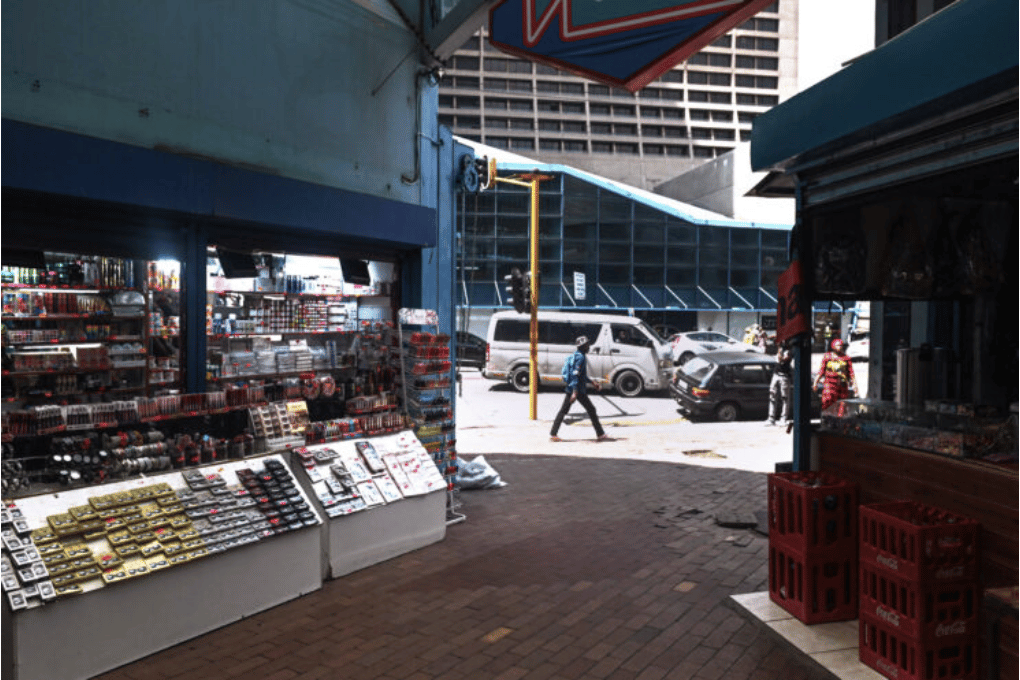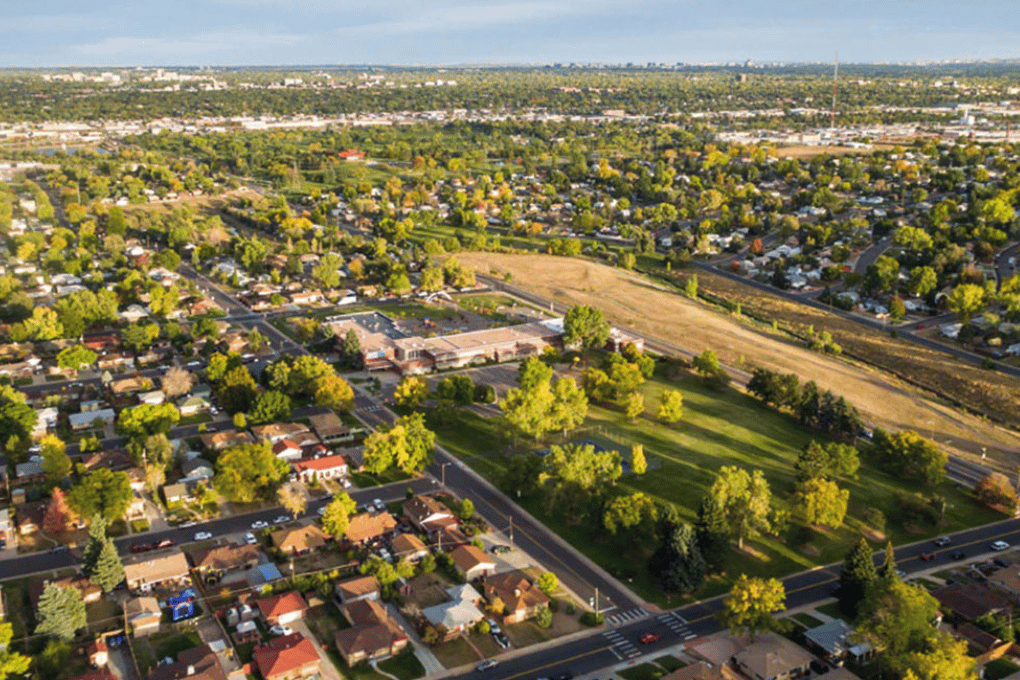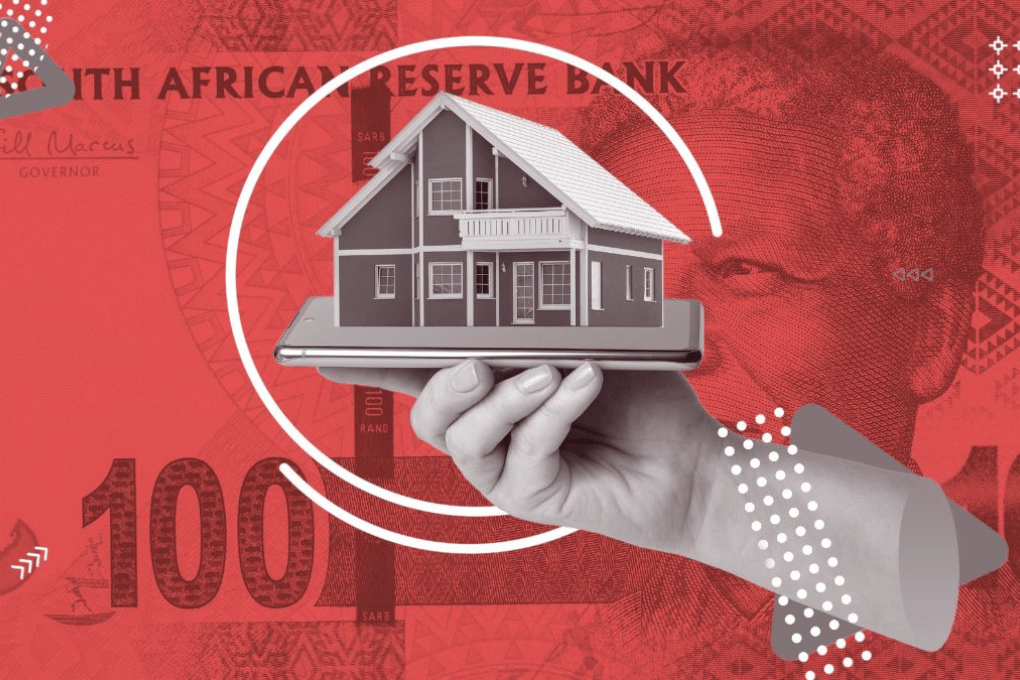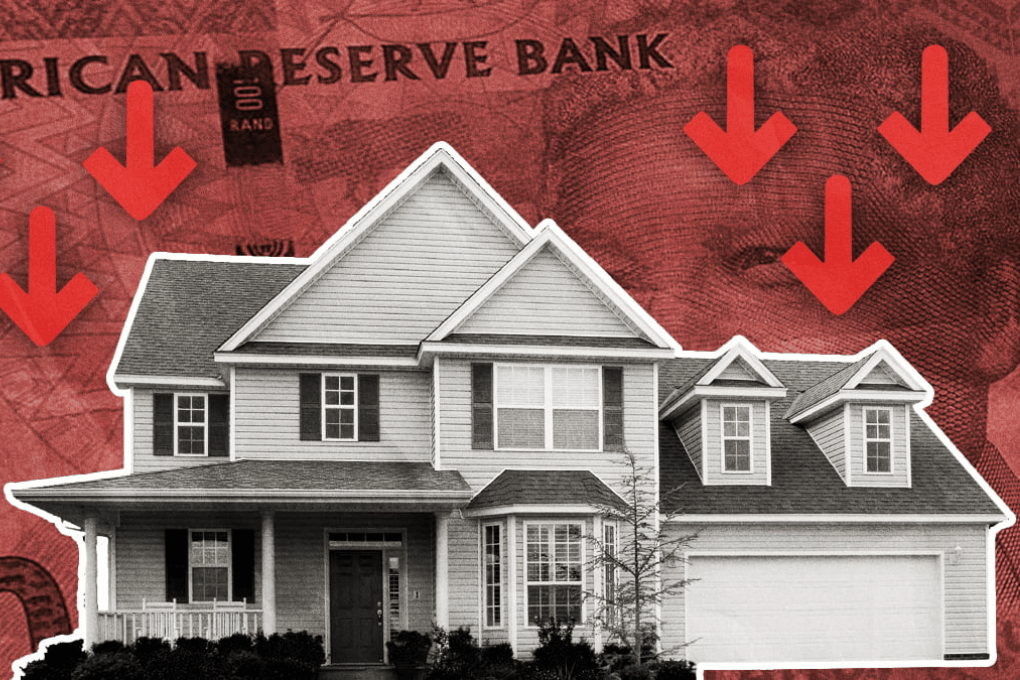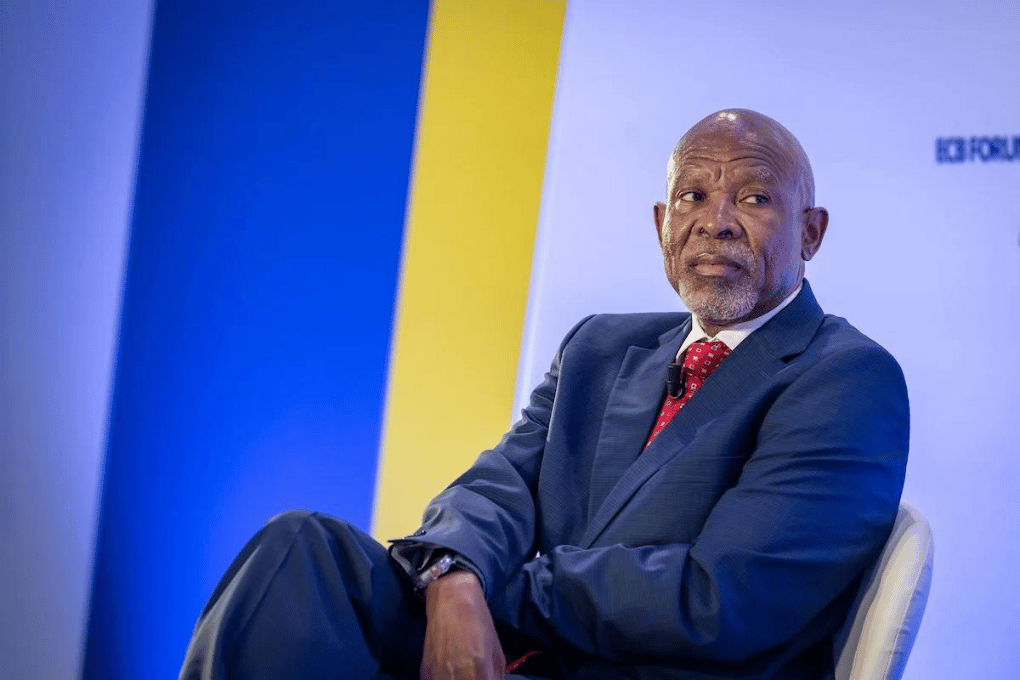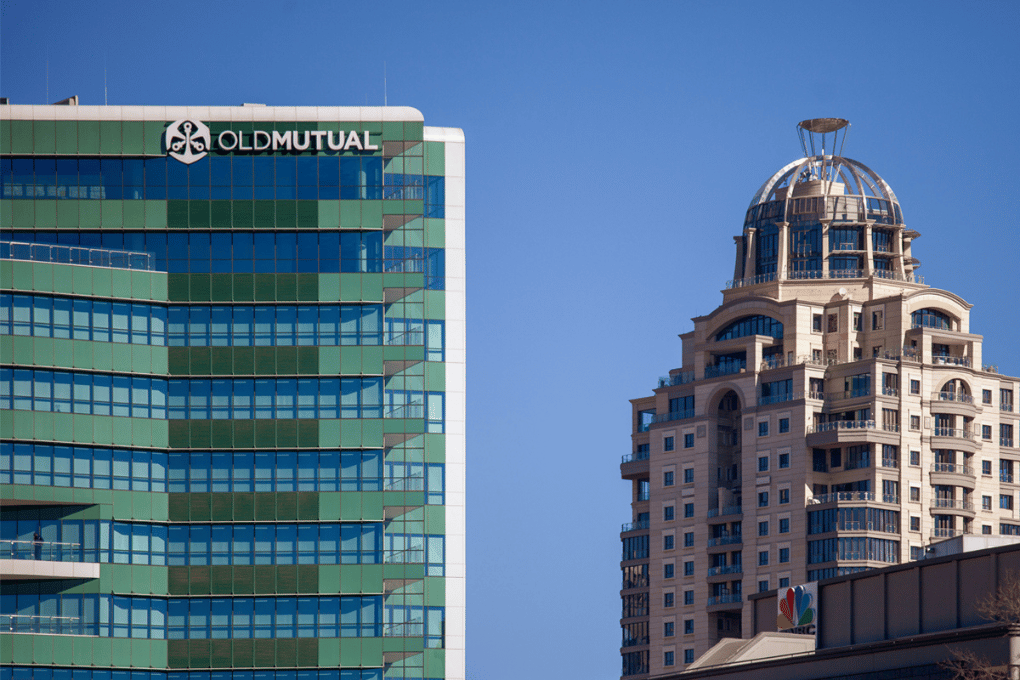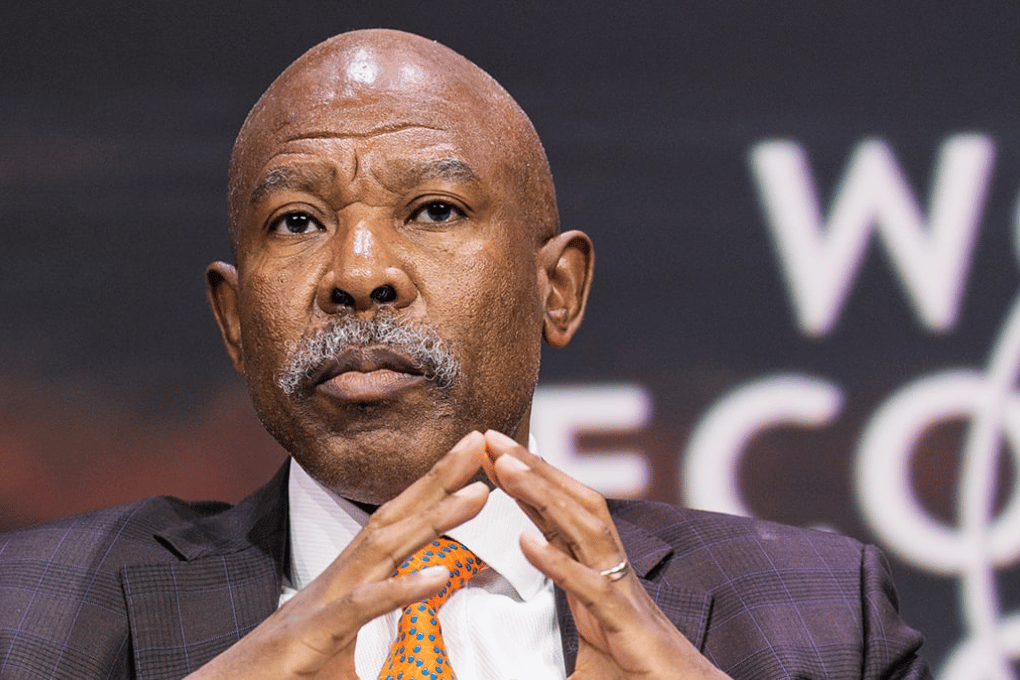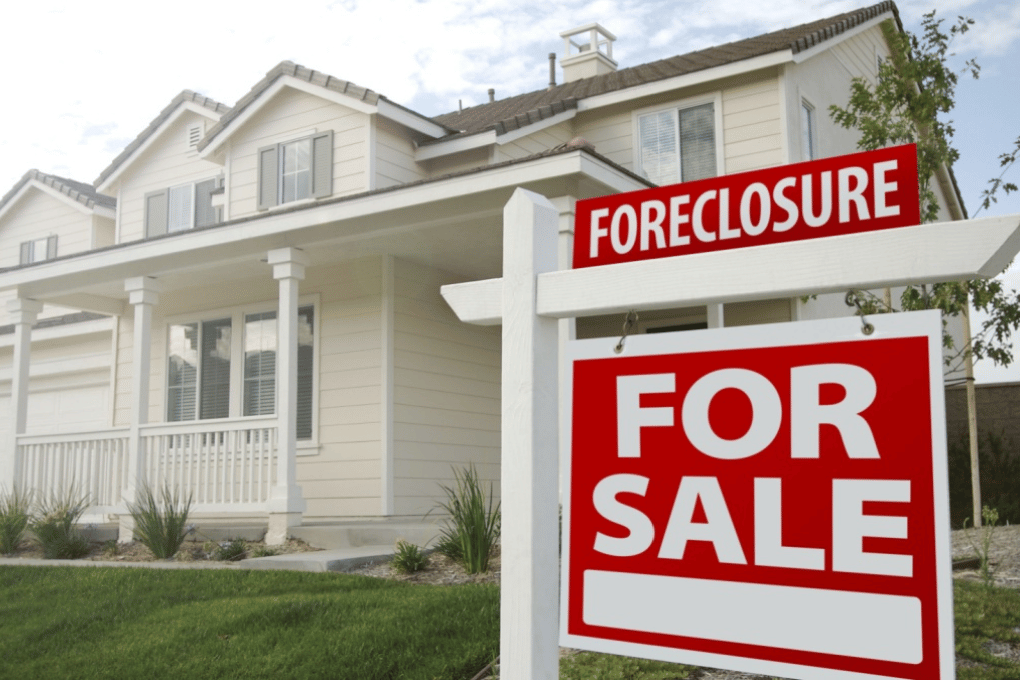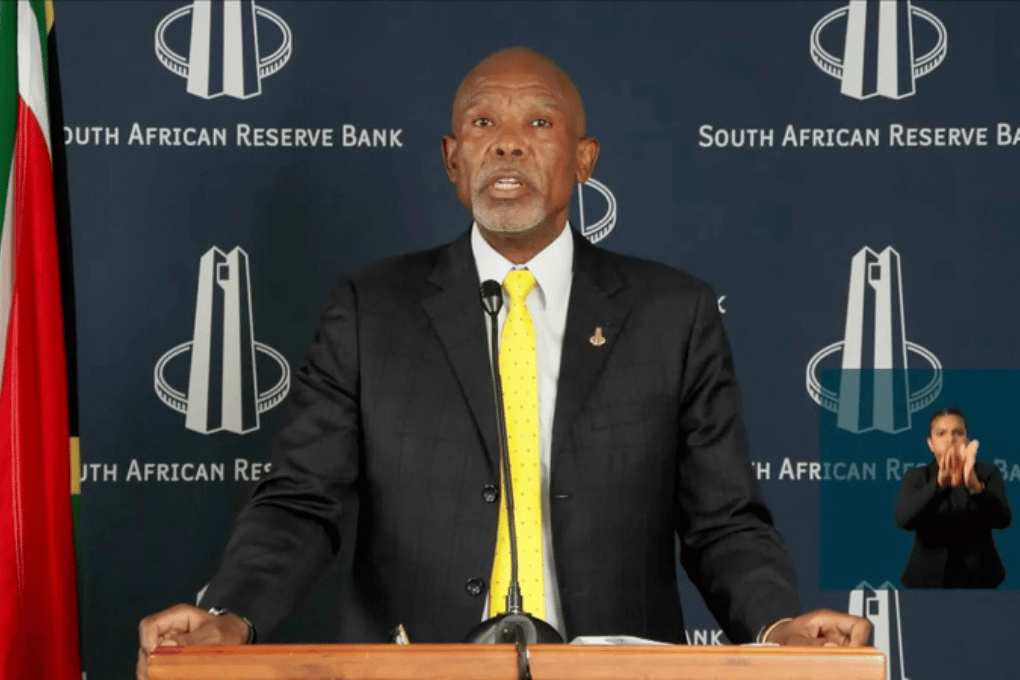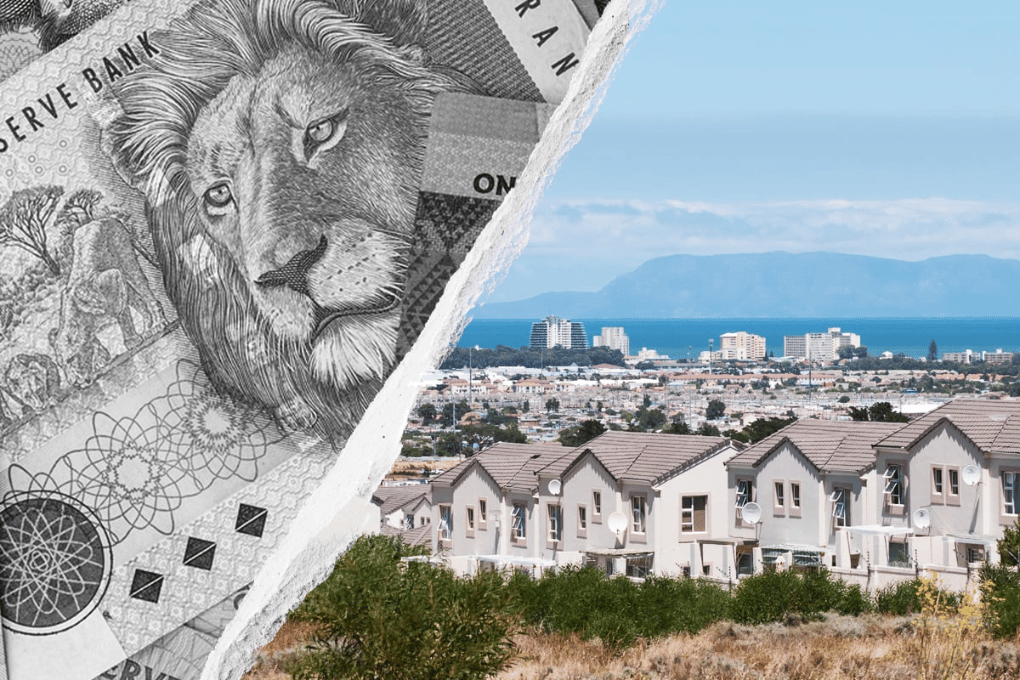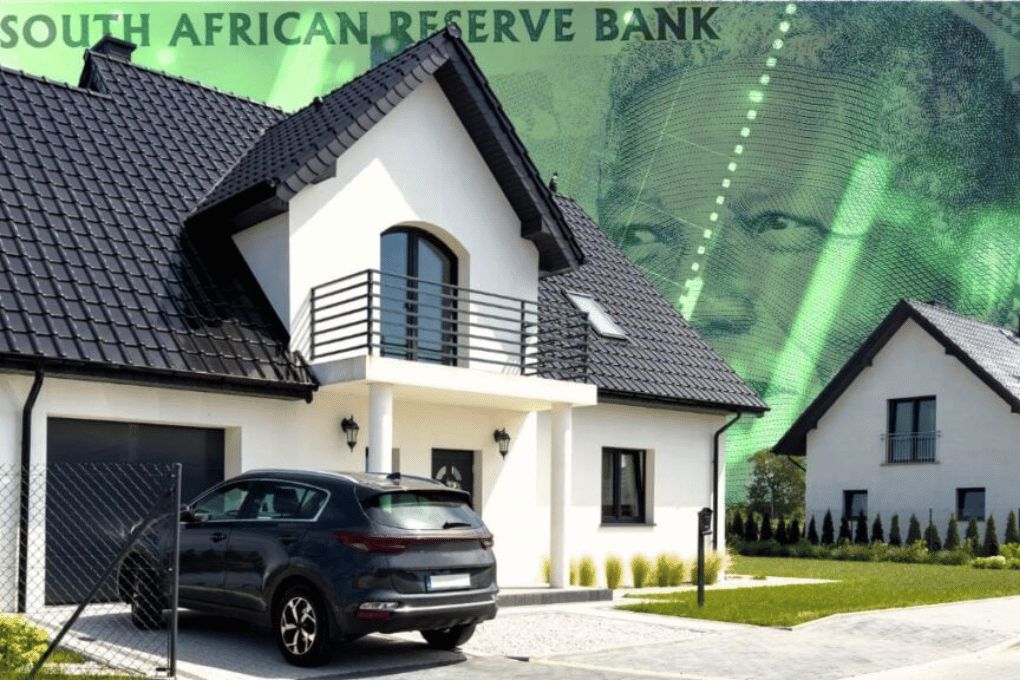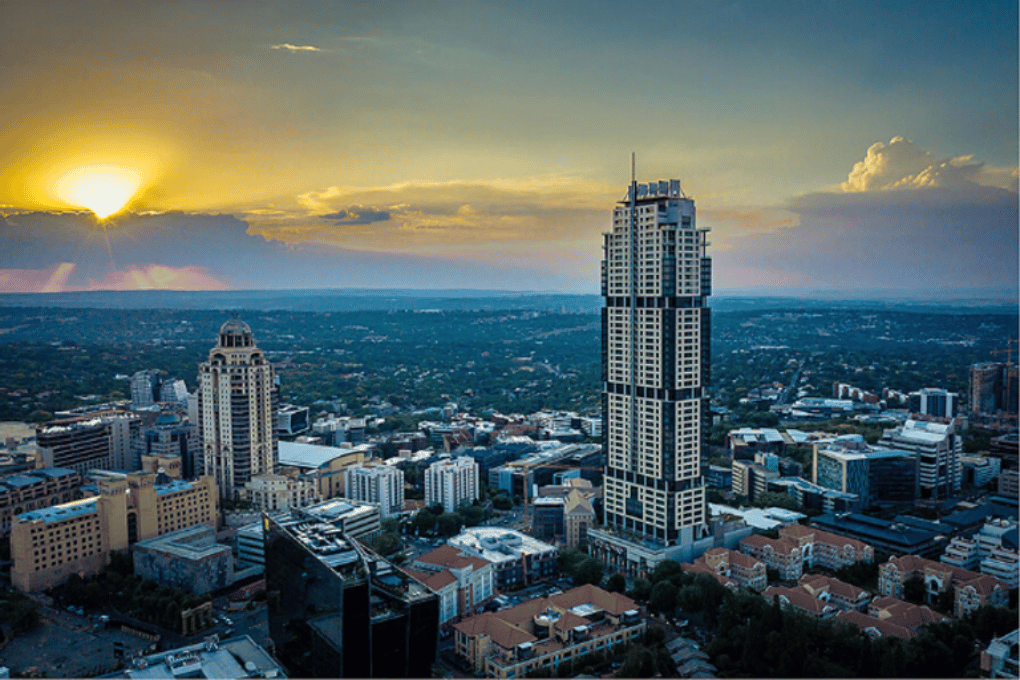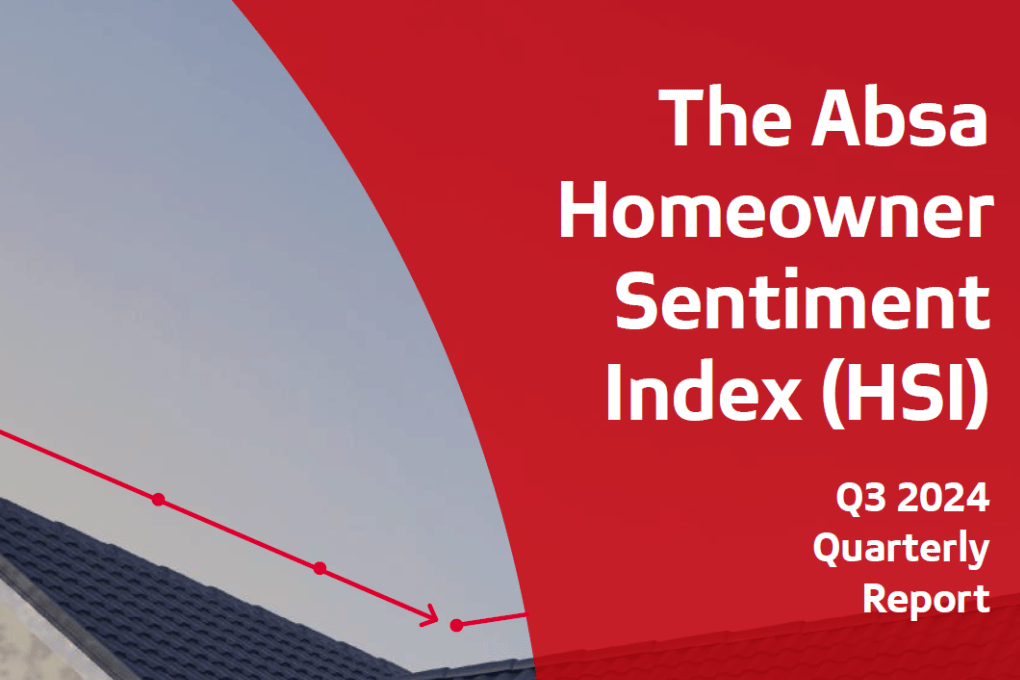
ABSA Homeowner Sentiment Index - Q3 2024
The Q3 2024 Absa Homeowner Sentiment Index (HSI) reveals cautious optimism in South Africa’s residential property market, with 84% expressing confidence. Buyer sentiment rose to 73%, while first-time buyers lead demand. Interest rate cuts and improving house price indices support recovery, though strained short-term finances temper immediate benefits.
Latest updates snapshot:
Property Industry News:
Bigger interest rate cuts on the cards
Daily Investor:
South Africa’s inflation expectations dropped to 4.6%, nearing the 4.5% midpoint preferred by the central bank, supporting continued interest-rate cuts. November inflation rose to 2.9% due to subdued food-price growth. Governor Lesetja Kganyago stressed caution on rate adjustments amid global uncertainties, with a 25 basis-point cut likely on 30 January.
South African inflation expectations decline to three-year low
Moneyweb:
South Africa’s inflation expectations for the next two years dropped to 4.6%, nearing the central bank’s preferred 4.5% midpoint, supporting gradual interest-rate cuts. Inflation edged to 2.9% in November, with eased food-price growth. Governor Lesetja Kganyago signalled cautious monetary adjustments amidst global uncertainties, including US trade policy and domestic economic pressures.
14-year blow for homeowners in South Africa’s richest city
BusinessTech:
Johannesburg’s residential property market has stagnated for 14 years, with prices stuck at 2010 levels due to unemployment, crime, and poor infrastructure. Demand remains weak, prompting migration to provinces like the Western Cape. Experts suggest further interest rate cuts could help, but structural economic and social challenges require long-term solutions.
The top homeownership trends in 2024 – according to Absa
Property Professional:
Absa’s Homeowners Sentiment Index for 2024 highlights trends including strong solo female ownership (66.6%) and rising first-time buyers (48%). Rental property conversions and alternative energy adoption are growing, while reducing electricity costs remains key. Consumer confidence is stable at 84%, driven by long-term property value belief despite economic and political concerns.
Reserve Bank scared of interest rate ‘regret’
BusinessTech:
South African Reserve Bank Governor Lesetja Kganyago advocates caution in interest rate adjustments, aiming to avoid policy regrets amidst global economic uncertainty. Despite inflation cooling to 2.8% in October, the repo rate remains tight at 7.75%. Kganyago supports lowering South Africa’s inflation target, arguing it is high relative to global peers.
The most expensive provinces for rent in South Africa
BusinessTech:
The Western Cape leads South Africa’s rental market with an average rent of R10,875 and 9.3% annual growth, while national rental growth reached 4.8% in Q3 2024. Improving tenant affordability, falling inflation, and interest rate cuts signal a more stable rental market, with tenants spending under 30% of income on rent.
8 signs you should skip buying a property in SA
BusinessTech:
The South African Reserve Bank’s November 2024 repo rate cut to 7.75% and the prime lending rate to 11.25% is spurring cautious optimism in the property market. However, experts warn buyers to prioritise due diligence by addressing red flags like structural issues, location drawbacks, outdated systems, and overpricing to ensure sound investments.
Red flags for people with home loans in South Africa
BusinessTech:
South African households face mounting financial distress, with mortgage defaults climbing as non-performing loans rose to R304 billion by mid-2024. Debt-servicing costs now consume 9% of disposable income. Nearly 23% of home sales are driven by financial difficulties, highlighting the cost-of-living crisis exacerbated by inflation and rising interest rates.
Bad news for South Africans who own a house
Daily Investor:
Residential mortgage defaults in South Africa have risen sharply, now above 6% of all home loans, nearly double the historical average. Elevated interest rates have pushed household debt-servicing costs to 9% of disposable income. Many households are struggling with rising costs, turning to credit cards, personal loans, or skipping essential payments.
Record-high house prices on the cards
Cape Business News:
South Africa’s residential property market shows robust recovery, with house prices now 39% higher than in 2019. First-time buyer applications rose 30% year-on-year, and Western Cape prices increased by 7.7%. Despite lingering effects of high interest rates, easing inflation and anticipated rate cuts are boosting confidence, spurring further market growth.
Warning for interest rates in South Africa
BusinessTech:
The reelection of Donald Trump and potential US tariffs on BRICS countries could affect South Africa’s economic outlook. Despite inflation at a four-year low of 2.8%, rising US interest rates and currency pressures threaten further cuts to South Africa’s repo rate, currently at 7.75%, while fears over a BRICS currency remain unfounded.
Bad news about inflation and interest rates in South Africa
Daily Investor:
South African inflation dipped below 3% in October but is expected to rebound due to rising electricity tariffs and medical aid costs. Goods inflation, now 1.4%, drove the recent decline, but service inflation remains steady. The Reserve Bank forecasts inflation to average 4% in 2024, with cautious interest rate cuts.
South African consumers remain confident in the property market outlook – ABSA
ABSA:
The Absa Homeowner Sentiment Index (HSI) shows 84% of South Africans remain optimistic about the residential property market, buoyed by two interest rate cuts. First-time buyers drive growth, with buy-vs-rent confidence at 83%. Cautious optimism prevails as house prices show incremental improvement, and inland regions exhibit higher confidence than coastal areas.
South Africans losing their homes
Daily Investor:
The SARB’s cautious interest rate cuts exacerbate economic hardship, with home loan defaults rising to 12.2%, up from 7-8%. Sentinel Homes’ Renier Kriek criticises the Reserve Bank for prioritising inflation targeting despite inflation being below pre-pandemic levels, arguing that more aggressive cuts could relieve financial pressure, stimulate growth, and create jobs.
SARB cuts interest rate: is it too late for South African households?
IOL:
The SARB’s second interest rate cut of 2024 reduces the repo rate to 7.75%, offering minor relief for South Africans facing economic hardships. While beneficial for homeowners and prospective buyers, critics argue the modest 25-basis-point cut is insufficient to address the high cost of living, rising debt, and food insecurity.
Distressing emerging trend for homeowners in South Africa
BusinessTech:
Financial distress is forcing nearly a quarter of South African homeowners to sell their properties, with 23% citing financial pressure in Q3 2024. Mortgage arrears have risen to 7.8%, far exceeding historical averages. Escalating living costs, soaring utility tariffs, and stagnant wages are compounding the strain, challenging homeowners’ financial stability.
RMB launches South Africa’s first ZARONIA calculator
IOL:
The Johannesburg Interbank Average Rate (JIBAR) will be replaced by the ZARONIA benchmark rate in South Africa. This shift impacts JIBAR-linked transactions, including loans, deposits, and derivatives. RMB has launched a ZARONIA Calculator and advisory services to assist businesses in adapting to the new reference rate and mitigating potential disruptions.
Alarming trend emerging for landlords in South Africa
BusinessTech:
South Africa’s rental market in 2024 faces rising squatter rates, climbing to 3.71% in Q2, despite historically low vacancy rates averaging 5.57%. Squatters disrupt cash flow, leaving landlords vulnerable. While tenant payment behaviours have slightly improved, challenges persist, especially among lower-income tenants. Effective management and legal compliance are critical for stability.
Top trends for property buyers and investors to look out for in 2025
BusinessTech:
South Africa’s 2025 real estate market is expected to focus on affordability, sustainability, and innovation. Key trends include efficient urban living, technological adoption, sustainable investments, luxury properties, and economic diversification. Demand spans mid-tier to premium housing, driven by young professionals and international investors seeking returns in an evolving, resilient market.
Big shift coming for South African property in 2025
Daily Investor:
Rental prices in South Africa are set to rise as landlords adjust to higher homeownership costs, tightening rental markets, and low vacancy rates. Subdued housing inflation, averaging 2.7%–3.1% recently, faces upside risks. With falling interest rates making homeownership more attractive, the rent-or-buy debate may shift towards purchasing.
Home Loan Data Shows Resurgence in First-Time Homebuyers
Caxton:
South Africa’s Q3 2024 property market shows signs of recovery, led by first-time homebuyers and supported by easing interest rates, lower deposit requirements, and competitive bank lending. First-time buyers, particularly younger ones, account for 51% of applications, while the Western Cape leads in buy-to-let investments. Consumer confidence is gradually improving.
Struggling with your home loan? Here’s how banks can help
IOL:
South African homeowners face severe financial pressure due to rising costs and a 67% increase in interest rates since 2021. About 7.2% of mortgage holders are three or more months in arrears, up 20% year on year. Financial experts urge homeowners to engage with banks for potential solutions to avoid repossession.
First-time homebuyers flocking to Gauteng
Daily Investor:
Gauteng leads South Africa in first-time homebuyer activity, accounting for 51% of BetterBond’s loans to this market segment, with Johannesburg’s affordable South-Eastern suburbs attracting buyers. The Western Cape ranks second despite high prices, driven by high demand and options in smaller towns and Cape Town’s northern suburbs. Falling interest rates boost market optimism.
Gauteng and Western Cape: Hotspots for first-time homebuyers in 2024
Property Review:
Gauteng leads first-time homebuyer activity in South Africa, capturing 51% of BetterBond’s loans, with demand high in affordable areas like Johannesburg’s South-Eastern suburbs. The Western Cape follows despite its high prices, spurred by young professionals. Expected interest rate cuts could further boost property market activity among new buyers.
Residential Property Industry Reports:
Industry Reports
History of published reports. including FNB Property Barometer and Eighty 20 Credit Stress Report
Monthly Property Industry Summaries:
Propery RoundUp
November 2024 Highlights
Inflation and Interest Rates: Temporary Relief but Long-Term Uncertainty
South Africa experienced a temporary drop in inflation to 2.8% in October 2024, falling below the Reserve Bank’s 3%-6% target range. While this has prompted cautious interest rate cuts—reducing the repo rate to 7.75%—rising costs such as electricity and medical aid may push inflation higher in 2025. The Reserve Bank prioritises stability amidst global uncertainties, including US monetary policy and the rand’s volatility, making aggressive rate cuts unlikely.
Optimism in the Property Market Despite Economic Strain
The Q3 2024 Absa Homeowner Sentiment Index showed strong confidence in the property market, with 84% of respondents expressing optimism. Interest rate cuts and steady house prices are encouraging first-time buyers, whose purchasing activity rose by 3.4% year-on-year. Coastal areas lead in high-end property investments, while affordable inland regions remain popular among first-time buyers. Short-term rental strategies and buy-to-let opportunities are also gaining traction.
Financial Distress Among Homeowners
Economic pressures are driving a surge in home loan defaults, with fully paid loans dropping from 93% to 87.8%. Rising interest rates and stagnant wages have led 23% of homeowners to sell properties due to financial hardship, while 7.8% of mortgage holders are in arrears. Escalating utility costs and stagnant incomes exacerbate the cost-of-living crisis, forcing many to seek repayment assistance or consider voluntary sales.
Rental Market Paradox: High Demand, Rising Squatters
South Africa’s rental market faces low vacancy rates (5.57% nationally) but rising squatter rates, reaching 3.71% by mid-2024. While landlords benefit from high occupancy, “hidden vacancies” caused by non-paying tenants erode revenue. Irregular payments, particularly from lower-income tenants, compound the challenge, requiring landlords to adopt proactive management strategies.
First-Time Buyers Drive Market Growth
First-time buyers accounted for 51% of home loan applications in Q3 2024, reflecting renewed confidence. Banks are easing deposit requirements, with competitive lending conditions favouring affordability. However, housing affordability varies, with the Western Cape leading in average prices and Gauteng offering budget-friendly options.
Long-Term Trends: Sustainability and Technological Integration
Sustainable living and smart technologies are reshaping the property market. Energy-efficient designs and digital property management tools are gaining traction, particularly in urban hubs. These trends align with global sustainability goals and cater to younger, tech-savvy buyers.
Rising Rental Prices and Ownership Debate
Rental inflation is expected to accelerate due to rising ownership costs and constrained housing supply. This may shift the rent-or-buy debate, as further interest rate cuts in 2025 could make homeownership more appealing.
Financial Support for Struggling Homeowners
Banks are introducing measures to assist homeowners under financial strain, including repayment plans, adjusted loan terms, and partial debt forgiveness. These interventions aim to reduce repossessions and support homeowners in regaining financial stability.
Demand for retirement properties in South Africa is increasing, driven by a growing senior population and lifestyle changes. Approximately 44,000 homes are in registered retirement complexes, primarily targeting the upper market. While the Western Cape leads in sales volumes and high average prices, the sector faces a need for more affordable housing options, highlighting potential growth areas for diverse retirement housing solutions across income levels.
Propery RoundUp
October 2024 Highlights
Gauteng Dominates First-Time Homebuyer Market Due to Affordability
Gauteng is South Africa’s leading province for first-time homebuyers, with 51% of loans from BetterBond going to this area. Johannesburg’s South-Eastern suburbs, such as Heidelberg, Vereeniging, and Alberton, offer attractively priced properties, with average bond values around R1.1 million. These prices remain below the transfer duty threshold, appealing to buyers with limited resources. This affordability, combined with proximity to economic hubs, positions Gauteng as a top destination for first-time buyers.
Western Cape Appeals to Young Professionals Despite High Prices
Despite high property prices, the Western Cape remains popular among first-time buyers, especially in Cape Town’s northern suburbs, Western Seaboard, and smaller towns. Younger professionals favour centrally located micro-apartments for their convenience. Average property prices in the province have risen 16.4% year-on-year, with the average home loan in Cape Town reaching R1.6 million, underscoring the Western Cape’s consistent demand despite economic challenges.
Interest Rate Cuts Expected to Revitalise Homebuying
The South African Reserve Bank (SARB) recently initiated an interest rate cut of 25 basis points in September 2024, after years of incremental hikes. Economists predict further reductions, potentially easing deposit requirements and spurring first-time buyer activity. Lower rates are anticipated to boost accessibility for new buyers and relieve financial pressure on existing homeowners, providing momentum for the property market’s gradual recovery.
“Reverse Semigration” Drives Gauteng’s Property Growth
Recent trends indicate a shift back to Gauteng, particularly among buyers seeking affordability amidst the “reverse semigration” trend. Balwin Properties reports Gauteng’s revenue surpassing that of the Western Cape. Lightstone data further highlights Gauteng’s appeal, with average home prices under R1.5 million in Johannesburg, and the province’s strong sell-to-buy activity accounting for 48% of the national market. Gauteng’s affordable property prices continue to attract both local and foreign buyers.
Rising Living Costs Strain Middle-Class Finances
A Standard Bank report reveals increasing financial pressures on middle-income South Africans, with nearly half of surveyed individuals either with minimal funds or in overdraft by payday. The costs of essential services, such as water and electricity, have soared, far outpacing inflation. Additionally, middle-class debt levels are high, with home loans and vehicle finance contributing to a 127% debt-to-income ratio, pushing many families toward financial insecurity.
Shift to ZARONIA for Improved Financial Transparency
South Africa’s financial system is set to transition from the Johannesburg Interbank Average Rate (JIBAR) to the South African Rand Overnight Index Average (ZARONIA) by 2026. ZARONIA is expected to provide a transparent, transaction-based benchmark aligned with global risk-free rates, impacting all JIBAR-linked contracts. This shift aims to foster a more reliable financial landscape, with increased regulatory and transparency standards.
Financial Challenges Increase Property Arrears and Debt Costs
High interest rates have pushed many South African homeowners into financial distress, with a rise in home loan arrears and a 36% year-on-year increase in debt costs. Banks are offering solutions like voluntary property sales and repayment plans to assist distressed homeowners. These measures aim to alleviate the financial strain and prevent repossessions, providing a pathway for homeowners facing economic hardship.
Retirement Property Market Growth Reflects Changing Demographics
Demand for retirement properties in South Africa is increasing, driven by a growing senior population and lifestyle changes. Approximately 44,000 homes are in registered retirement complexes, primarily targeting the upper market. While the Western Cape leads in sales volumes and high average prices, the sector faces a need for more affordable housing options, highlighting potential growth areas for diverse retirement housing solutions across income levels.
Propery RoundUp
September 2024 Highlights
Household Financial Health and Consumption Growth
In the latter half of 2024, South African households experienced improved financial conditions, reflected in higher household consumption expenditure (HCE). A 0.9% rise in personal disposable income (PDI) and steady compensation of employees bolstered this trend. Household debt also fell to 62.2% of disposable income, down from 63% in Q1, while debt servicing costs eased to 9.1%. Despite a declining savings rate, economists remain optimistic, forecasting continued income growth and further interest rate cuts due to stabilised inflation.
Real Estate Market Recovery
The South African property market is seeing renewed demand, supported by the South African Reserve Bank’s (SARB) recent 25-basis-point interest rate cut. Home loan applications rose 3.5% year-on-year by August, with approvals growing 5%. Property prices have increased by 6.4% quarter-on-quarter, signalling market confidence. Major developments such as the R18 billion Bankenveld District City and R120 billion Gautrain expansion are also boosting job creation and homeownership opportunities, particularly in the lower market segments.
Interest Rate Cuts and Their Economic Impact
SARB’s interest rate cut, its first since 2020, has spurred varied expectations about future reductions. Goldman Sachs predicts bold cuts of 150 basis points, while Standard Bank foresees a more moderate 75 basis points. Governor Lesetja Kganyago remains cautious, with SARB’s model projecting a gradual reduction to 7.17% by the end of 2024. Inflation is expected to slow to 4% by 2025, supporting an easing monetary policy.
Government Push for Fair Lending Practices
Minister of Human Settlements Mmamoloko Kubayi defended changes to South Africa’s home loan disclosure laws, aiming for greater transparency. The government wants to identify and address potential discriminatory lending practices, despite criticisms. Amendments to the Home Loan and Mortgage Disclosure Act (HLAMDA) will enhance enforcement and data quality, promoting fairness in bank lending practices.
Challenges in Housing Affordability
Although South African property prices rose 23.8% over five years, affordability remains a challenge. The average national salary is insufficient to afford an average home. Affordability is further constrained by the banks’ lending criteria, which require repayments to stay below 30% of gross income. The Western Cape, with the highest property price increases, remains particularly unaffordable for many buyers.
Rising Confidence in Gauteng’s Property Market
Gauteng saw a significant recovery in its property market in 2024, fuelled by post-election stability and renewed investor confidence. Johannesburg, in particular, experienced a surge in inquiries, and rental demand remains strong. Foreign buyers have also increased interest, particularly in secure sectional title properties. Analysts expect Gauteng to become a buyer’s market as interest rates fall.
Property Practitioners’ Regulatory Win
Sakeliga, a South African business group, secured a victory for property practitioners when the Property Practitioners Regulatory Authority (PPRA) reversed its policy requiring strict BEE compliance for issuing Fidelity Fund Certificates (FFCs). This decision is expected to ease burdens on smaller businesses while maintaining broader regulatory requirements.
Credit Growth and Economic Resilience
Private sector credit extension (PSCE) growth declined in mid-2024, with demand weakening across subcategories. However, economists at Nedbank predict a gradual recovery as interest rates fall and inflation eases. Renewed confidence, driven by factors like the two-pot retirement system, is expected to boost disposable income and credit demand later in the year.
Propery RoundUp
August 2024 Highlights
Interest Rate Adjustments and Market Recovery
The South African residential property market has been significantly impacted by rising interest rates since November 2021. The South African Reserve Bank’s (SARB) rate hikes have led to a cautious sentiment among homebuyers and subdued growth in the real estate sector. However, with predictions of a potential rate cut as soon as September 2024, there is optimism for market recovery. Banks like Standard Bank and Capitec are already seeing an uptick in home loan demand as inflation moderates, which could signal a revitalization in the latter half of the year.
Regional Property Price Disparities
Property price growth in South Africa has varied significantly across provinces. The Western Cape has outperformed others with a 35.5% increase in property prices from 2019 to 2024, while the Northern Cape saw the slowest growth. Adjusted for inflation, real property values have declined by 3.9% nationally, with only the Western Cape showing a modest real increase. This disparity highlights regional differences in service delivery and investment, which have become key drivers of property value.
Legislative Changes to Improve Access to Home Loans
The South African government is moving to amend the Home Loan and Mortgage Disclosure Act to improve access to home loans for previously disadvantaged citizens. The proposed changes will require banks to provide more detailed disclosures on their lending practices, particularly regarding rejected applications. This legislative push aims to create a more equitable housing finance environment, aligning with broader social and economic inclusion goals.
Election Uncertainty and Its Impact on Property Prices
The second quarter of 2024 saw muted growth in the housing market as property owners awaited the outcome of national elections. While listing prices increased by 7%, market activity remained subdued due to the political uncertainty. Despite this, the national average sales price saw a modest increase, indicating some resilience in the market. The building sector, however, showed signs of weakness with a 13.4% decline in the value of building plans passed, reflecting ongoing caution among investors.
Rise of Female Homeownership
Women have become the dominant force in South Africa’s property market, now accounting for 38% of property ownership. This shift marks a significant trend reversal from a decade ago when mixed-gender couples were the largest group of property buyers. Despite purchasing lower-valued properties on average, women’s growing financial independence is reshaping the real estate landscape.
Affordability and Rental Market Dynamics
Rental prices in South Africa have continued to rise, with the national average rent reaching R8,785 in Q2 2024. The Western Cape remains the most expensive region, with significant growth in rental prices. However, tenant affordability remains a concern as wage growth has not kept pace with rising living costs, leading to increased arrears.
Influence of Younger Generations on the Property Market
Millennials and Gen Z are increasingly influencing the South African property market, prioritising flexibility, sustainability, and technology in their property choices. This has led to a higher demand for urban apartments and townhouses with access to amenities, reshaping the housing market to accommodate the preferences of these younger buyers.
Provincial Challenges and Service Delivery Impact
KwaZulu-Natal (KZN) has experienced significant declines in property prices due to service delivery issues, high municipal rates, and infrastructure failures. These challenges have led to a migration of residents to areas with better services, further impacting property dynamics in KZN. Conversely, the Western Cape continues to see positive growth, driven by better service delivery and investment.
Propery RoundUp
July 2024 Highlights
Modest House Price Growth Amid Inflation Challenges
In Q2 2024, South African house prices experienced a nominal growth of 0.4% year-on-year, according to Rode’s Report on the South African Property Market. However, in real terms, prices continued to decline due to high inflation rates. The Western Cape led the market with the fastest house sales, while Gauteng lagged behind. The forecast for the remainder of 2024 suggests that house price growth will remain subdued, although there is cautious optimism for 2025, driven by expected interest rate reductions.
Interest Rate Stability and Prospective Cuts
The latest Monetary Policy Committee (MPC) meeting resulted in a decision to keep interest rates unchanged, hinting at potential cuts in the near future. This decision aligns with global trends of rate cuts among emerging market peers. Economists, including Standard Bank’s Goolam Ballim, anticipate a series of interest rate cuts starting with a 25 basis point reduction in September 2024.
Economic Growth and Vacancy Rates
Despite an improving economic outlook, significant growth similar to the pandemic era is not expected due to ongoing structural issues. National flat vacancy rates averaged 6.7% in Q2 2024, a decline from 7.9% in Q1 2024. The Western Cape recorded the lowest vacancy rate at 2.7%, while Gauteng saw a notable decrease to 6.5% from 9.3%. Flat rentals increased by 2% year-on-year in Q1 2024, with official data from Stats SA indicating a 3.6% nominal increase.
Regional Property Market Trends
The Q2 2024 Oobarometer report by Ooba Home Loans highlighted that the Western Cape was the only province with inflation-adjusted growth in residential property prices. Nationally, general and first-time homebuyer purchase prices saw nominal year-on-year increases of 2.3% and 2.7%, respectively. However, in real terms, property price growth remained negative due to high inflation. The Western Cape showed robust growth with significant increases in first-time and repeat homebuyer prices.
Shifts in Homeowners’ Sentiment and Trends
Absa’s Homeowners Sentiment Index (HSI) for Q2 2024 revealed a decreased interest in alternative power solutions (APS) due to a stable electricity supply since March 2024. However, reducing electricity costs remains a priority for 69% of homeowners. The survey also noted a high percentage of first-time home loan applicants, a rise in eco-conscious homeowners, and an increasing trend of renting properties for secondary income.
Market Activity and Buyer Confidence
The FNB Residential Property Barometer indicated a slight decline in house prices in June 2024, with the House Price Index growing by 0.5% year-on-year. Election jitters and affordability concerns contributed to lower market activity, although the affordable housing segment showed resilience. First-time homebuyer demand surged, driven by expectations of imminent interest rate cuts.
Long-Term Property Price Trends
Lightstone Property’s report highlighted a dramatic increase in South African property prices since 1994, with an average nominal sale price rising from under R150,000 to R1.4 million by early 2024. Despite recent financial pressures, first-time homebuyer activity remains significant, supported by loans exceeding 100% of the purchase price to cover upfront costs.
Transition to ZARONIA
The South African Reserve Bank announced that the Johannesburg Interbank Average Rate (JIBAR) will be replaced by the South African Rand Overnight Index Average (ZARONIA) as the primary reference rate in 2025. This transition aims to enhance the accuracy and transparency of interest rate calculations in South Africa, impacting various financial instruments and necessitating updates in financial models and valuation methodologies.
Propery RoundUp
June 2024 Highlights
Rental Vacancies at Historic Lows
In Q1 2024, South Africa’s national rental vacancies dropped to a historic low of 4.42%, according to the TPN Vacancy Survey Report, down from 6.69% in the previous quarter. This decrease is attributed to high interest rates, poor employment conditions, and economic uncertainty, which have driven more households towards renting. Stats SA’s General Household Survey noted a decline in homeownership from 64.4% in 2022 to 62.9% in 2023, while the rental market grew from 22.5% to 23.9%.
Landlord Market and Investment Insights
The TPN report highlights a favourable market for landlords, with rental demand significantly outstripping supply. The highest rental value band, between R12,000 and R25,000 per month, showed the strongest performance. Investors face high financing costs due to elevated interest rates but benefit from low vacancy rates, offering increased security. The Western Cape and Gauteng are identified as the best markets for landlords and investors.
Interest Rates and Lending Criteria
The South African Reserve Bank (SARB) has maintained the repo rate at 8.25%, with local banks holding the prime lending rate at 11.75%. Standard Bank has tightened its lending criteria due to an increase in credit impairments, driven by clients’ inability to repay loans. This strategy has led to significantly lower loan growth, with home loans growing nearly flat at 2% in 2023. S&P projects credit growth to average around 5% in 2024, following a decline in lending in 2023.
Competition Among Banks for First-Time Homebuyers
South Africa’s major banks—Absa, FNB, Nedbank, and Standard Bank—are competing for first-time homebuyers by offering various incentives, including home loans exceeding 100% of the purchase price and attractive interest rate discounts. Despite a decrease in the first-time homebuyer segment to 46% in Q1 2024 from 56% in May 2020, banks are easing pressure by offering rate concessions.
Business Confidence and Economic Indicators
The Bureau for Economic Research (BER) reported a significant increase in business confidence in South Africa’s Other Services sector, rising to 55 in Q2 2024. The real estate subsector saw a remarkable rise in confidence, driven by improvements in business conditions and volumes. Despite high interest rates and election concerns, the increase in confidence suggests a recovery after a previous slump.
Negative Sales and Property Market Health
Lightstone Property’s May 2024 newsletter reveals a troubling rise in negative sales, where properties are sold for less than their purchase price. This trend particularly affects properties purchased ten years ago, highlighting an increasing number of distressed sales despite a decrease in foreclosures. The rise in negative sales indicates broader economic pressures and challenges in achieving expected property value growth.
Youth Homeownership Decline
Lightstone’s market research data shows a significant decrease in home purchases by young South Africans, particularly among the 26-35 age group. Despite the decline in volume, the price of homes purchased by buyers up to 35 years old has increased. The most popular areas for buyers aged 35 or younger include Impumelelo in Devon and Sky City in Ekurhuleni.
Inflation and Interest Rate Outlook
In June 2024, South Africa’s inflation rate slowed to 5.1%, its lowest in six months, potentially encouraging the SARB to consider cutting interest rates later in the year. Forward-rate agreements suggest a 15-basis-point rate cut at the Monetary Policy Committee’s (MPC) September meeting and a full 25-basis-point reduction by year-end. This aligns with economists’ predictions and reflects a cautiously optimistic outlook for the South African economy.
Co-Buying as a Solution to Affordability Challenges
In response to rising property prices and tightening economic conditions, South Africans are increasingly turning to co-buying as a viable path to homeownership. This collaborative purchasing approach allows individuals to pool resources, enhancing their buying power and enabling access to more desirable properties. Despite legal complexities and the need for clear agreements, co-buying represents a forward-thinking approach to address economic challenges and strengthen community ties.
Selling Costs and Market Conditions
Selling a house in South Africa has become increasingly costly, with expenses averaging around R150,000. FNB’s latest Property Barometer and House Price Index (HPI) shows minimal growth in home prices over the past three years, with high interest rates, political uncertainty, and a weak economy contributing to declining property demand. The SARB’s potential shift to a 3% inflation target suggests sustained high-interest rates, further delaying property market recovery.
Economic Growth Prospects
South Africa’s GDP growth prospects for 2024 remain bleak, with a 0.1% decline in Q1 2024. Economists remain cautious despite the suspension of load shedding, predicting uneven economic growth and continued financial strain on households. However, a potential monetary policy easing cycle in the second half of the year could support real incomes and boost consumer confidence.


